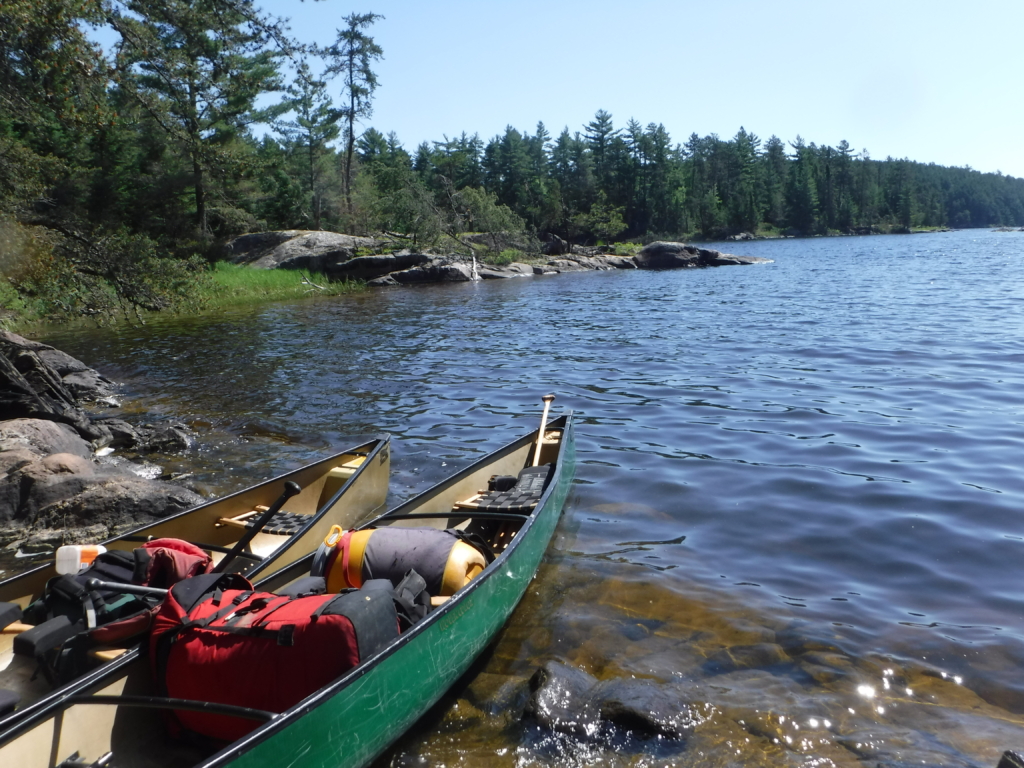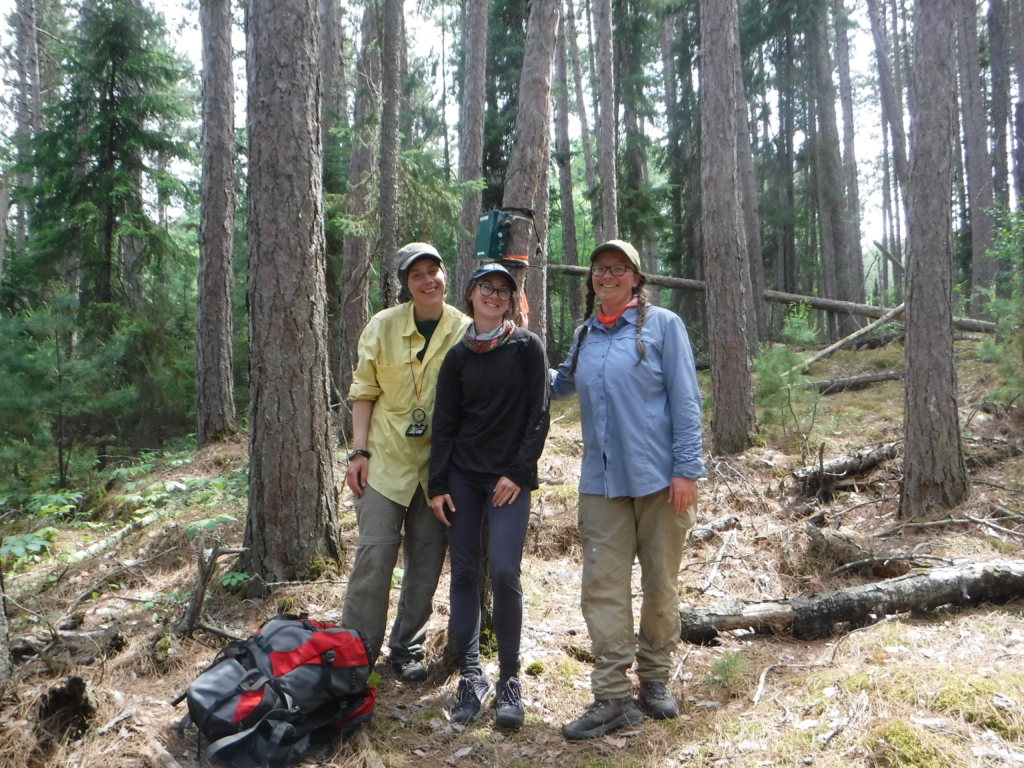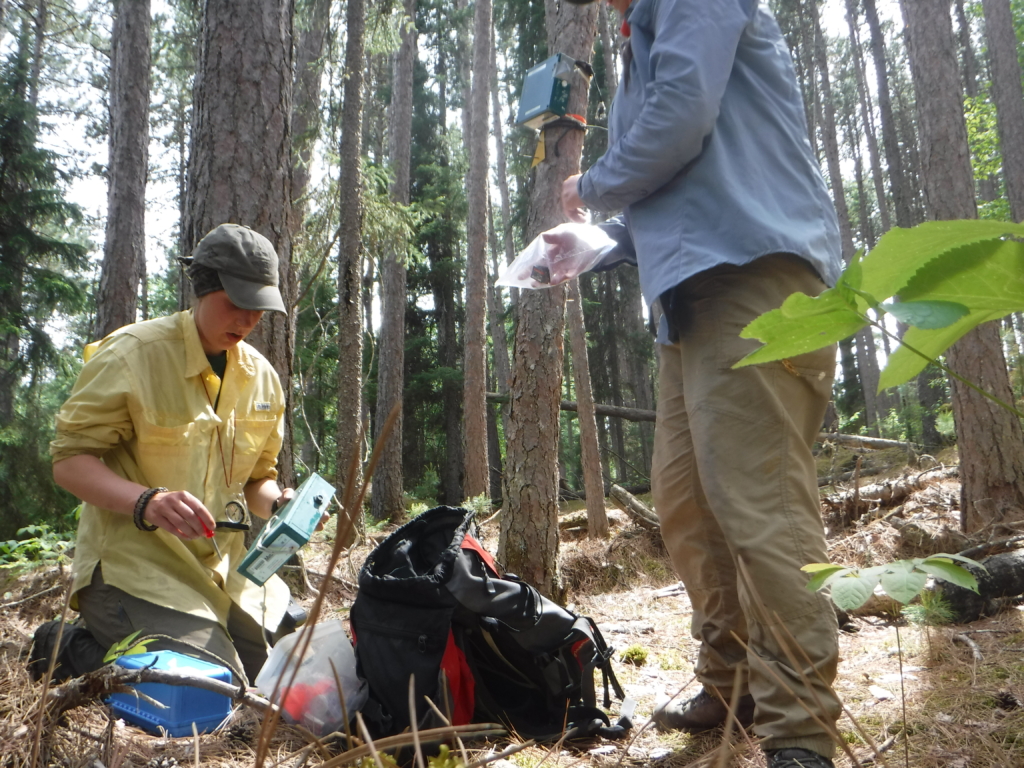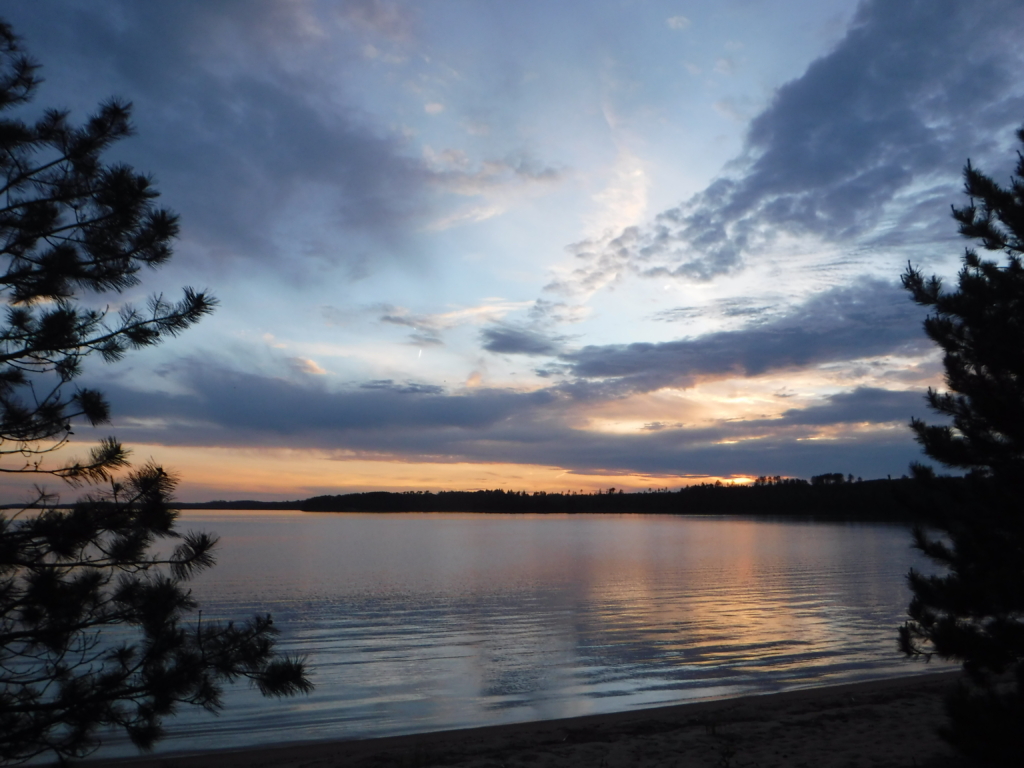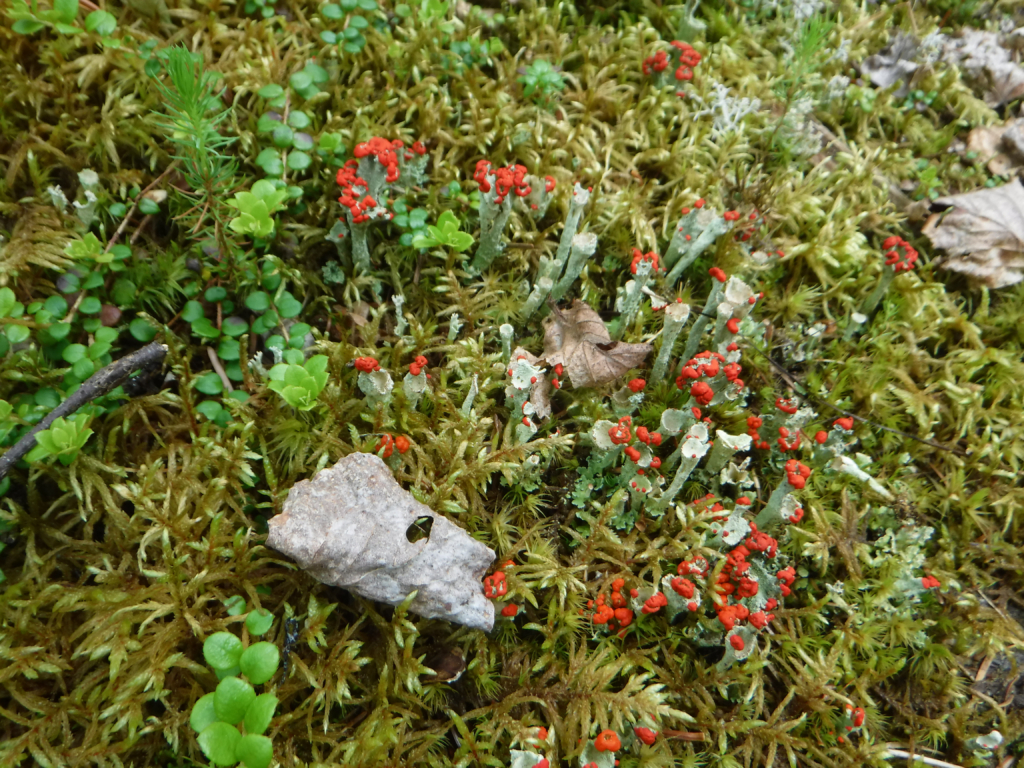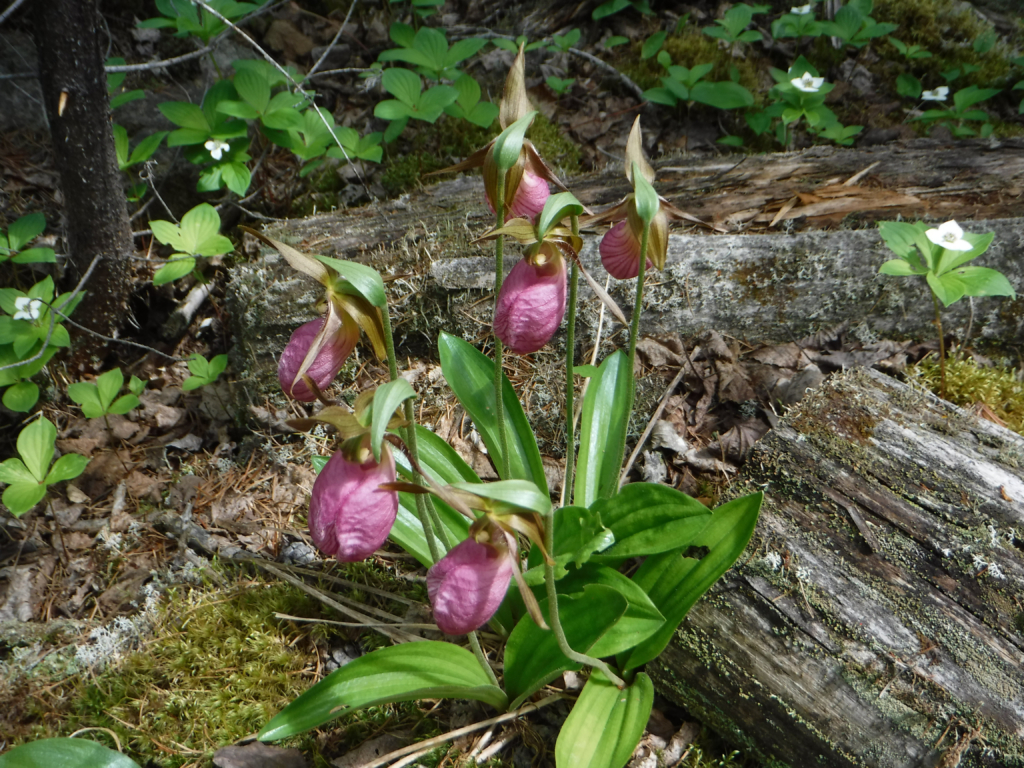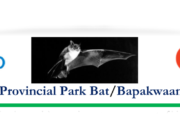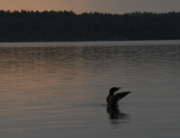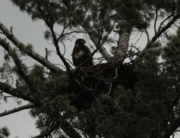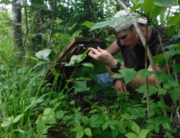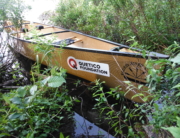We all know bird songs to be beautiful, but as it turns out they can also be quite useful. Forest birds are a valuable and convenient indicator of forest health. These birds are sensitive to changes in ecosystem health, and their association with forest habitat makes them ideal for detecting fluctuations in forest condition. Each species of songbird has a unique call which allows for relatively easy identification of the species of songbirds within an area. Since 2014, Quetico Foundation summer research staff have assisted Quetico Provincial Park in the monitoring of songbird calls and the analysis of songbird data. Wildlife Acoustic’s SongMeters are used to record audio data at dawn when songbirds are most vocal. Once this data is collected (at the end of the summer) a technician can determine which birds were heard within the forest nearest to the SongMeter, and over the course of several years of data collection can observe trends in songbird populations. This long-term monitoring effort will be used by Quetico Park to assist in making informed management decisions. The data will provide information on the impacts of fire and other disturbances on songbird communities, bird species at risk, and provide a better understanding of how fragmented landscapes impact songbird migration.
From June 6th to June 11th Karissa Jackson, a Quetico Foundation Biology Intern, assisted three Quetico Provincial Park staff in the maintenance of 17 SongMeters, in order to prepare the acoustic devices for recording bird calls through the summer. The trip was a great success and the meters are now set up to record bird calls throughout the summer. The data that is collected by the acoustic devices will be valuable to the Quetico Park Biologist as he strives to protect and manage the 1.2 million acres of beautiful, rugged country that is Quetico Provincial Park.
During the trip the Quetico Foundation staff encountered pleasant weather, with clear and sunny days throughout the trip. In addition to pleasant weather, the research crew had the privilege of enjoying picturesque camping sites on various lakes within the Park. Beautiful sunrises marked the start of each day while scenic sunsets capped-off the evenings.
While on trip Quetico Foundation staff encountered several charismatic, non-forest-bird avian species including mating pairs of loons, and a pair of majestic trumpeter swans. A larger forest bird, the broad-winged hawk, was also chanced upon as it flew along the shoreline of Fern Lake searching for its next meal. In addition to bird species, various other wildlife were seen, including many smallmouth bass, which is a favorite species of Quetico’s wilderness anglers.
By: Jared Stachiw (Quetico Foundation Biology Intern), photos: Jessica Atatise

